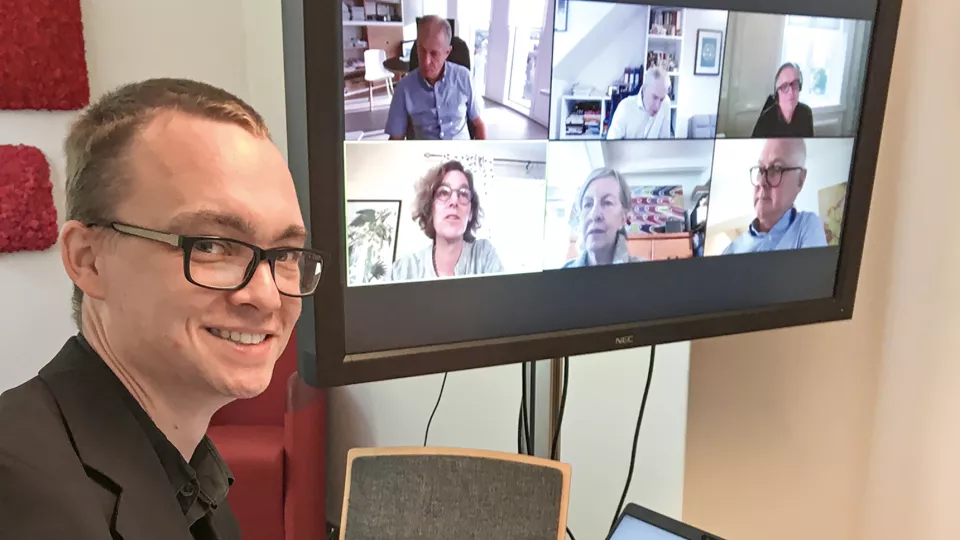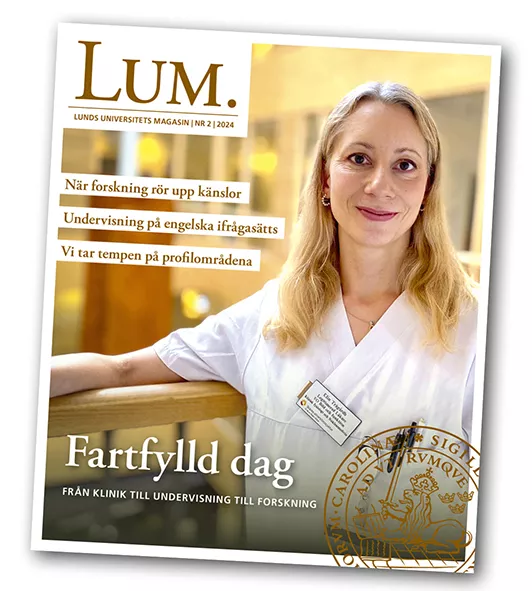Together with project coordinator Malin Bredenberg, Mats Benner and Freddy Ståhlberg have reviewed the 32 subject panel reports based on the same number of self-evaluations, and they think the self-evaluations are relatively in line with the assessor reports. Benner and Ståhlberg praise the faculties for being so open and honest in their self-evaluations, and they also think that all reports, both internal and external, are very well written.
“They have really taken these assignments seriously, so we are very happy about that.”
Planned site visits were upheld in digital form
But the question is whether the project managers are most happy about the fact that RQ20 was able to be carried out at all. Some other higher education institutions discontinued their evaluations when the pandemic broke out earlier in the spring. In Lund, rearrangements were made and planned site visits were upheld, just in digital form.
“Obviously the assessors lost some of the sense of the environment, but they got enough out of the conversations and dialogues on the screen that it was worth it”, explains Ståhlberg.
The project managers give the coordinators a lot of credit – both the project’s own and those of the faculties and the technicians at LU Conferences. They are the real heroes; the ones who ensured the organisational aspects and all the digital support worked. A major job would have risked being lost if they had been forced to postpone the evaluation.
“The self-evaluations are of their time and would not have endured a long wait."
Lund University is meeting the expectations of a strong international university
The final assessor reports are not complete, but so far the project coordinators note that Lund University is meeting the expectations of a strong international university – without exception. They note that some subjects have different prerequisites and conditions. There are also some environments that are small – perhaps too small to achieve the critical mass on which good research is dependent by themselves. External funding and the dependence on that hits less financially supported research hard, and there are also major variations in this area.
“We ask ourselves where LU stands in terms of external funding. Is there any overall direction or opinion?” asks Benner.
There is also great interest in interdisciplinarity, and the assessors wonder who is responsible for that.
The reports generally contain more questions than answers
The reports generally contain more questions than answers, including how to replace leaders and how to ensure regeneration after a top researcher moves to another higher education institution or retires. These are actually questions that belong in one of the five transversal panels on which intensive work is currently being carried out. These panels raise issues such as leadership, recruitment, management, organisation, collaboration and infrastructure.
“The fact that recruitment is raised as early as in the subject panels shows what a major and important issue it is”, says Ståhlberg.
The assessors, who have reviewed policies and other governance documents, also point out the importance of diversity and of working actively on it instead of haphazardly. Benner suspects the assessors want to see more proactivity in that area.
161 evaluation units belong to the 32 subject panels, and these have now been set an additional task as the results of the assessor reports have reached them.
“They must specify on a sheet of A4 between three and five areas for improvement within their units that are possible to implement essentially without delay”, explains Ståhlberg.
What then remains before RQ20 reaches its goal is to conclude work on the transversal panels and await the assessors’ reports concerning these. The final report is expected to be complete by the end of the year, which means that RQ20 will keep to 2020.
“However, the editing will take us a little way into the new year before the report can be presented as a whole,” the project managers believe.



